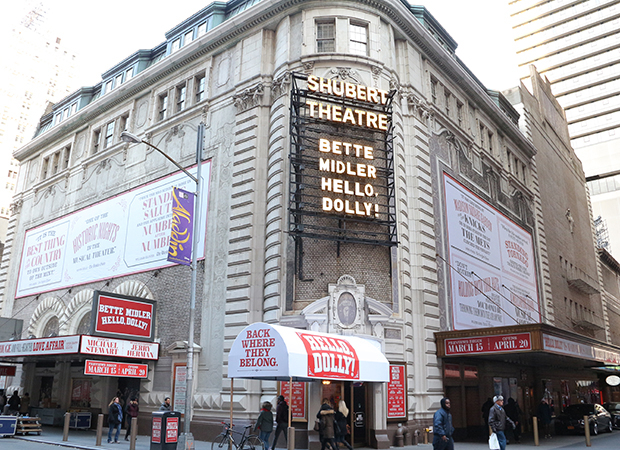On the "Tyrannical Geniuses" of the Theater Industry, and Why the Bad Behavior Needs to Stop

(© David Gordon)
There's an old, oft-repeated story in the theater industry. Jerome Robbins, the alternately beloved, reviled, oppressive, virtuosic choreographer, was giving notes to his cast one day. Robbins was an exacting, abusive taskmaster — he was never known to let politeness stand in his way — and as he addressed his company, perhaps berating them for things that had gone wrong, he backed closer and closer and closer to the orchestra pit, eventually falling in. Nobody stopped him.
Whether or not this event actually happened — and most people say it did, during rehearsals for Billion Dollar Baby in 1945 — it has become the image that pops into people's thoughts when they discuss Robbins's volatile reputation, a rare moment of comeuppance for a person who regularly wreaked havoc on his artists. Robbins was certainly not the first of that ilk and clearly not the last, just one in a long line of "tyrannical geniuses" who got away with awful stuff because they spun gold out of straw.
Read between the lines in any making-of tome, from Ted Chapin's Everything Was Possible: The Birth of the Musical Follies to Glen Berger's Song of Spider-Man and you'll see that the theater industry is awash with these kinds of people. This Star refuses to work with that understudy. This playwright bars that actor from playing a role because of a perceived slight decades earlier. Whole stretches of the movie 42nd Street go by where it's just the director character, Julian Marsh, absolutely berating the cast, and that's even before they started rehearsal. A Chorus Line is literally about a director who forces his auditionees to tell their most embarrassing story in exchange for a part in his show. Producers allegedly hurl produce at hired hands who don't have the right answer to a question, and choreographers pick out "weakest link" performers and subject them to a barrage of insults in the form of "notes."
And yet, for the most part, they always got away with it. Why? Because they're creative geniuses. And if given the opportunity to work with a genius, everyone will bend over backward, no matter what kind of psychological or physical toll it takes. It's human nature; people want to get close to power in the hopes that it'll rub off. If a Star can sell out the a show for 12 weeks, does it matter if they're a notorious predator? Does the mere existence of Fiddler's "Bottle Dance" justify the harm done to the artists whose bodies broke while executing it? Should anyone get away with bad behavior? Absolutely not. But like Cathy sings in The Last Five Years, "Yes, he's insane, but look what he can do. And I'm a part of that."
In the year since the theater industry shut down, there has been reckoning after reckoning, and true to form, the theater industry — the Broadway industry, particularly — has done what it does best, the bare minimum. A statement will give the appearance of change without actually being held accountable to do the work. Staffers will take diversity or sexual harassment or anger management training and half-heartedly pay attention, returning to the same old patterns because the higher-ups didn't take it seriously either. No one wants to do the work, because doing the work might mean that you have to give up power.
Creating a hit is not enough of a reason to tolerate bad behavior, but many people think it is. It's time to get past that, though, and fast. We're in a new world now, and it's time to demand that the powerful people who have gotten away with abuse change their ways and start to lead with kindness, respect, and equity. If not now, after all we've been through the past year, when?










